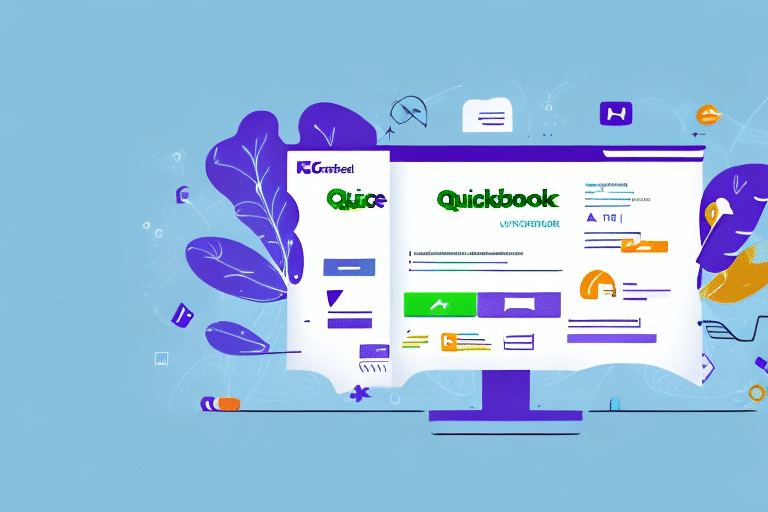How QuickBooks Integrates with FedEx Ship Manager for Seamless Business Operations
Efficient shipping and accurate financial tracking are crucial for any business that ships products to customers. Integrating QuickBooks with FedEx Ship Manager offers a comprehensive solution, combining robust shipping management with powerful accounting capabilities. This integration not only streamlines your operations but also enhances data accuracy and supports informed business decisions.
Key Benefits of Integrating QuickBooks with FedEx Ship Manager
Enhanced Data Accuracy
By connecting QuickBooks with FedEx Ship Manager, businesses can ensure that shipping and financial data are consistently accurate and up-to-date. This reduces the risk of errors that can lead to costly shipping mistakes or accounting discrepancies.
Time and Cost Efficiency
The integration automates the transfer of shipping data into QuickBooks, eliminating the need for manual data entry. This not only saves time but also minimizes the potential for human error, leading to significant cost savings over time.
Improved Decision-Making
Access to real-time shipping and financial data allows businesses to analyze trends and make informed decisions. For instance, identifying high shipping costs for specific products can help in adjusting pricing strategies or exploring more cost-effective shipping options.
Step-by-Step Guide to Integrate QuickBooks with FedEx Ship Manager
Prerequisites
- Ensure you have the latest versions of QuickBooks and FedEx Ship Manager installed.
- Have administrator access to both QuickBooks and FedEx Ship Manager.
Integration Process
- Download and install the FedEx Ship Manager software on your computer.
- Open QuickBooks and navigate to the “Edit” menu, then select “Preferences”.
- Under “Shipping”, click on “Integrations”.
- Select “FedEx Ship Manager” as your shipping integration and follow the on-screen prompts to complete the setup.
- Once integrated, verify that shipping information is accurately reflected within QuickBooks, including associated accounting entries.
Troubleshooting Tips
If you encounter issues during the integration, consult the official QuickBooks Support or FedEx Support for assistance.
Optimizing Shipping Management with QuickBooks and FedEx Ship Manager
Automated Shipping Data Entry
Automating the entry of shipping data into QuickBooks ensures that all shipping information, including tracking numbers and delivery dates, is accurately recorded without manual intervention.
Real-Time Package Tracking
Track the status of each shipment directly from QuickBooks, providing visibility into delivery estimates and any potential delays. This feature enhances customer service by keeping customers informed about their orders.
Cost Management and Savings
Compare shipping rates and select the most cost-effective options for each shipment. Over time, this can lead to substantial savings and more efficient use of resources.
Time and Cost Savings through Integration
Eliminating Manual Data Entry
Automating data transfer between QuickBooks and FedEx Ship Manager reduces the time spent on manual entry and the likelihood of errors, leading to more efficient operations.
Reducing Shipping Errors
Accurate data synchronization minimizes shipping errors, such as incorrect addresses or billing amounts, which can be costly to rectify and damage customer trust.
Streamlined Financial Reconciliation
Having shipping and financial data consolidated in QuickBooks simplifies the reconciliation process, ensuring that your financial records are always accurate and up-to-date.
The Importance of Accurate Shipping Data
Business Forecasting
Accurate shipping data enables businesses to anticipate peak periods, optimize inventory levels, and plan for increased demand, ensuring that operations run smoothly during high-demand times.
Customer Satisfaction
Providing reliable and timely shipping information enhances customer satisfaction and loyalty, as customers are kept informed about the status of their orders.
Operational Efficiency
Accurate data helps identify inefficiencies in the shipping process, allowing businesses to implement improvements and optimize their logistics operations.
Best Practices for a Successful Integration
Regular Software Updates
Ensure both QuickBooks and FedEx Ship Manager are regularly updated to benefit from the latest features and security enhancements.
Data Mapping Accuracy
Carefully map your shipping items in QuickBooks to their corresponding services in FedEx Ship Manager to ensure accurate data recording and tracking.
Testing Before Full Implementation
Conduct thorough testing of the integration to identify and resolve any potential issues before rolling it out across your entire business.
Maintaining Accurate Shipping Addresses
Regularly update and verify shipping addresses to avoid delays and errors in the shipping process.
Automated Tracking Notifications
Set up automated tracking notifications to monitor shipment progress and promptly address any issues that arise.
Tracking Packages with QuickBooks and FedEx Ship Manager
Integrating QuickBooks with FedEx Ship Manager allows you to track all your packages directly from QuickBooks. Navigate to the “Sales” menu and select “Shipping” to view recent shipments, their statuses, tracking numbers, and estimated delivery dates. Additionally, you can print shipping labels and access real-time shipping rates, ensuring that your shipping costs are accurately calculated and managed.
Troubleshooting Common Integration Issues
Data Import Errors
If you encounter errors when importing shipping data into QuickBooks, verify that you have the latest software versions installed and that your shipping items are correctly mapped. Refer to the official support resources if issues persist.
Data Mismatches
Regularly reconcile data between QuickBooks and FedEx Ship Manager to prevent discrepancies in shipping rates or tracking information. This practice ensures consistency and accuracy across both platforms.
System Compatibility
Ensure that your computer meets the minimum system requirements for both QuickBooks and FedEx Ship Manager to prevent integration issues and maintain optimal performance.
Conclusion
Integrating QuickBooks with FedEx Ship Manager is a strategic move for businesses aiming to enhance their shipping and financial management processes. This integration not only saves time and reduces costs but also ensures data accuracy and supports informed decision-making. By following best practices and addressing common integration challenges, businesses can achieve seamless operations and drive sustained growth.




















